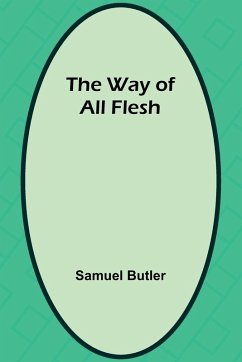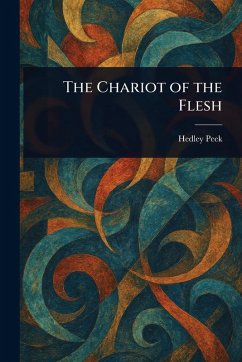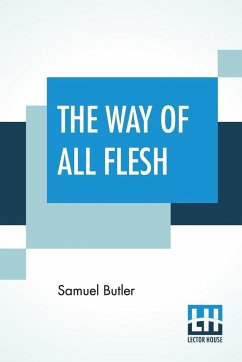
The Way of All Flesh
Versandkostenfrei!
Versandfertig in über 4 Wochen
23,99 €
inkl. MwSt.

PAYBACK Punkte
12 °P sammeln!
Samuel Butler's "The Way of All Flesh" offers a compelling glimpse into Victorian era family life. This domestic novel presents a multi-generational family saga, exploring themes of social criticism and the complexities of coming of age within the constraints of middle-class society. As a work of literary fiction, it dissects the expectations and realities of familial relationships. Butler's narrative provides insight into the biographical experience of navigating family dynamics. The story examines the triumphs and tribulations inherent in the family life of a bygone era. Readers interested i...
Samuel Butler's "The Way of All Flesh" offers a compelling glimpse into Victorian era family life. This domestic novel presents a multi-generational family saga, exploring themes of social criticism and the complexities of coming of age within the constraints of middle-class society. As a work of literary fiction, it dissects the expectations and realities of familial relationships. Butler's narrative provides insight into the biographical experience of navigating family dynamics. The story examines the triumphs and tribulations inherent in the family life of a bygone era. Readers interested in historical fiction and depictions of societal norms will find "The Way of All Flesh" a captivating read. It remains a relevant portrayal of enduring human experiences. This work has been selected by scholars as being culturally important, and is part of the knowledge base of civilization as we know it. This work is in the public domain in the United States of America, and possibly other nations. Within the United States, you may freely copy and distribute this work, as no entity (individual or corporate) has a copyright on the body of the work. Scholars believe, and we concur, that this work is important enough to be preserved, reproduced, and made generally available to the public. We appreciate your support of the preservation process, and thank you for being an important part of keeping this knowledge alive and relevant.














